
Ayurveda and Diabetes: Ancient Remedies for a Modern Epidemic
Share
Every 10 Seconds, Another Indian Diagnosed with Diabetes, Are You Next?
By the time you finish reading this article, dozens more will have joined the ranks of the 77 million Indians already living with diabetes. India isn't just the land of spices and Bollywood anymore; it's rapidly becoming the diabetes capital of the world. Type 2 diabetes cases have skyrocketed by over 150% in the last three decades, and alarmingly, this isn't just affecting the elderly.
Young adults and even teenagers are now at significant risk. Reference
The Silent Tsunami: Diabetes Among the Youth
- Rising Youth Cases: A recent study found that over 10% of new diabetes cases in India are among people under 25.
- Lifestyle Culprits: Sedentary lifestyles, frequent sugar spikes through frequent meals, stress eating and junk food have led to a 70% increase in childhood obesity, a major risk factor for diabetes.
- Genetic Predisposition: South Asians are genetically more susceptible to insulin resistance, making us prime targets.
-
Urbanization Woes: Rapid urbanization has led to unhealthy eating habits and reduced physical activity, increasing diabetes risk by 25%.
Reference-1 | Reference-2 | Reference-3 |
Global Pandemic, Local Impact
Globally, diabetes affects over 463 million people, and that number is expected to rise to 700 million by 2045. But in India, the situation is dire. With our population's unique genetic makeup and rapidly changing lifestyles, we're facing a perfect storm. Reference
The Hidden Dangers
- Complications Galore: Diabetes isn't just about high blood sugar. It leads to heart disease, kidney failure, blindness, and amputations.
- Economic Burden: The cost of managing diabetes can consume up to 25% of an average Indian family's income.
-
Quality of Life: Daily insulin shots, strict diets, constant monitoring—diabetes can severely impact your quality of life.
Reference-1 Reference-2
Recognizing the Early Symptoms of Diabetes: Are You at Risk?
Being aware of diabetes symptoms is critical for early intervention and preventing complications like retinopathy and neuropathy. Here are some common warning signs of diabetes mellitus to look out for:
-
Frequent Urination: When blood sugar levels are high, the kidneys work harder to filter and absorb the excess glucose, leading to frequent urination.
-
Increased Thirst: High blood sugar can cause dehydration, making you feel thirsty more often than usual.
-
Unexplained Weight Loss: Both type 1 and type 2 diabetes can lead to sudden weight loss as the body starts to burn muscle and fat for energy instead of glucose.
-
Extreme Fatigue: When cells can't access glucose effectively, they are starved for energy, resulting in feelings of weakness and exhaustion.
-
Blurred Vision: High glucose levels can cause the eye lens to swell, leading to blurry vision, a sign of possible retinopathy if left unchecked.
-
Slow Healing of Cuts and Wounds: Elevated blood sugar impairs blood flow, reducing the body's ability to heal wounds and increasing the risk of infection.
-
Numbness or Tingling in Hands and Feet: This is an early sign of neuropathy, a complication that affects nerves due to prolonged high blood sugar levels.
-
Increased Hunger: As blood sugar fluctuates, the body may signal hunger frequently, especially for carbohydrate-rich foods.
- Dark Patches on the Skin: Often seen around the neck or armpits, these patches (called acanthosis nigricans) can indicate insulin resistance, a precursor to type 2 diabetes.
When to Test: If you notice any of these symptoms, consult your doctor and consider a glucose test to check your blood sugar levels. Early intervention is crucial in managing diabetes and preventing complications.
The Ayurvedic Approach to Diabetes Management
Long before modern medicine recognized diabetes as a metabolic disorder, ancient Ayurvedic texts like the Charaka Samhita, Sushruta Samhita, and Ashtanga Hridaya detailed a condition called "Madhumeha".
Ayurveda views diabetes not just as a condition of elevated blood sugar but as a systemic imbalance involving the body's three doshas—Vata, Pitta, and Kapha. In diabetes, there is often an aggravation of Kapha dosha, leading to metabolic disturbances.
Ayurvedic treatment for diabetes focuses on holistic healing through these time-tested methods:
- Removes harmful toxins (Ama) through Panchakarma.
- Cleanses blood for better glucose regulation.
- Improves pancreatic function naturally.
2. Herbal Medication (Aushadhi)
- Gymnema sylvestre (Gurmar) for blood sugar balance.
- Bitter gourd and fenugreek for diabetes control.
- Neem and Turmeric for their anti-diabetic properties.
3. Dietary Regulations (Ahara)
- Blood sugar-friendly diet plans.
- Emphasis on low-glycemic foods.
- Proper meal timing for glucose management.
- Inclusion of diabetes-fighting spices.
4. Lifestyle Modifications (Vihara)
- Daily yoga and meditation for diabetes.
- Proper sleep schedule.
- Stress management techniques.
- Regular physical activity. Reference
Key Ayurvedic Herbs for Diabetes and Their Mechanisms
Gurmar (Gymnema sylvestre)
Historical Use:
Known as the "sugar destroyer," Gurmar leaves have been chewed in India for centuries to reduce the taste of sweetness.
Mechanism of Action:- Gymnemic Acids: These active compounds reduce sugar absorption in the intestines by mimicking glucose molecules.
- Beta-Cell Regeneration: Studies suggest Gurmar may regenerate insulin-producing beta cells.
- Reduced Sugar Cravings: Temporarily blocks the taste of sweetness, helping with dietary control. Reference
Daruhaldi (Berberis aristata)
Historical Use:
Used in Ayurveda as a remedy for various ailments, including skin diseases and digestive disorders.
Mechanism of Action:- Berberine: Lowers blood sugar levels by enhancing insulin sensitivity and activating AMPK, which regulates energy metabolism.
-
Antioxidant Effects: Reduces oxidative stress, protecting against diabetic complications. Reference
Vijaysaar (Pterocarpus marsupium)
Historical Use:
Traditionally, water stored overnight in cups made from Vijaysaar wood was consumed in the morning to manage diabetes.
Mechanism of Action:- Alpha-Glucosidase Inhibition: Slows carbohydrate digestion and glucose absorption.
- Beta-Cell Protection: Exhibits protective effects on pancreatic beta cells, boosting insulin secretion. Reference
Guduchi (Tinospora cordifolia)
Historical Use:
Referred to as "Amrita" in Sanskrit, meaning "nectar of immortality," used for its rejuvenating properties.
Mechanism of Action:- Immunomodulation: Beneficial for autoimmune forms of diabetes by modulating immune function.
-
Antioxidant Activity: Protects pancreatic cells from oxidative stress, promoting insulin secretion. Reference
Methi (Fenugreek - Trigonella foenum-graecum)
Historical Use:
Widely used in Indian cuisine and traditional medicine for digestive and metabolic benefits.
Mechanism of Action:- 4-Hydroxyisoleucine: Stimulates insulin secretion, particularly when glucose levels are high.
- Fiber Content: High in soluble fiber, which slows carbohydrate digestion and absorption, improving blood sugar control.
-
Lipid-Lowering Effects: Reduces total cholesterol and triglyceride levels, improving metabolic profiles. Reference
Khadir (Acacia catechu)
Historical Use:
Used for its astringent and antioxidant properties in treating skin conditions and digestive issues.
Mechanism of Action:- Catechins and Epicatechins: Potent antioxidants that protect cells from oxidative damage.
- Glycemic Control: Improves insulin sensitivity and enhances glucose uptake by cells. Reference
Ayurveda’s Role in Diabetes Reversal
Modern research supports Ayurveda's effectiveness in managing and potentially reversing type 2 diabetes.
A 2019 study involving 100 participants showed that after six months of Ayurvedic treatment (including herbs like Gurmar and Vijaysaar), 68% of participants lowered their HbA1c levels to pre-diabetic ranges. Reference
Mechanisms of Action:
- Pancreatic Regeneration: Herbs like Gurmar and Vijaysaar aid in regenerating insulin-producing beta cells.
- Improved Insulin Sensitivity: Daruhaldi and Methi enhance the body's response to insulin.
- Reduced Inflammation: Chronic inflammation is a major contributor to insulin resistance, and herbs like Guduchi and Khadir offer potent anti-inflammatory benefits.
Conclusion:
Diabetes is not just a chronic condition; it's a global epidemic demanding immediate attention. While modern medicine provides essential tools for diabetes management, integrating the ancient wisdom of Ayurveda offers a holistic approach to tackling the root causes of this disease.
By focusing on detoxification, balanced nutrition, lifestyle modifications, and the therapeutic use of specific Ayurvedic herbs, Ayurveda addresses the systemic imbalances that lead to diabetes.
The scientifically supported benefits of Natural diabetes remedies and herbs like Gurmar, Daruhaldi, Vijaysaar, Guduchi, Methi, and Khadir showcase their potential in regulating blood sugar levels, enhancing insulin sensitivity, and protecting pancreatic function. Incorporating these herbs into your daily regimen can be a natural and effective strategy in your journey toward better blood sugar control. Reference
Introducing Manimitra by Moksha Botanicals
If sourcing and preparing these herbs seems daunting, Manimitra by Moksha Botanicals brings this ancient Ayurvedic wisdom directly to you in a convenient form.
Why Choose Manimitra?
-
Synergistic Formula: Combines the power of six potent Ayurvedic herbs known for their blood sugar-regulating properties.

- High-Quality Ingredients: 100% Organic & gluten free premium quality best Ayurvedic herbs sustainably sourced and processed to retain maximum potency.
-
Purity and Safety: US FDA approved, Halal approved, and compliant with GMP, ISO, and HACCP standards.
Each of our products undergoes rigorous testing and adheres to strict regulatory guidelines to ensure safety, efficacy, and consistency.. - Ease of Use: Available in easy-to-swallow capsules, making daily supplementation effortless.
Key Benefits of Manimitra
- Supports Healthy Blood Sugar Levels: Assists in the management of type 2 diabetes by promoting glucose homeostasis.
- Enhances Insulin Sensitivity: Ingredients like Methi and Daruhaldi improve the body's response to insulin.
- Promotes Metabolic Wellness: Guduchi and Khadir aid in detoxification and support overall metabolic health.
- Antioxidant Defense: Rich in antioxidants to combat oxidative stress and reduce inflammation.
Take Charge of Your Health Naturally
Diabetes doesn't have to control your life.
By integrating Ayurvedic diet for diabetes control, exercise, sleep and food supplement like Manimitra into your daily routine, you're choosing a path informed by centuries of Ayurvedic practice and supported by modern scientific research.
Make the Shift Today
- Invest in Your Well-being: Prioritize your health with a natural supplement designed to work synergistically with your body.
- Embrace Holistic Health: Combine Manimitra with a balanced diet and active lifestyle for optimal results.
- Join a Community: Be part of a growing number of individuals who are taking a proactive approach to managing diabetes.
Order Manimitra Now and Step Into a Healthier Future
Don't let diabetes dictate the terms of your life. With Manimitra by Moksha Botanicals, you have a trusted ally in your journey toward improved health and vitality.
Disclaimer: Results may vary from person to person. This product is not intended to diagnose, treat, cure, or prevent any disease. Consult your healthcare provider before starting any new supplement, especially if you have a medical condition or are taking medication.
Related Tags



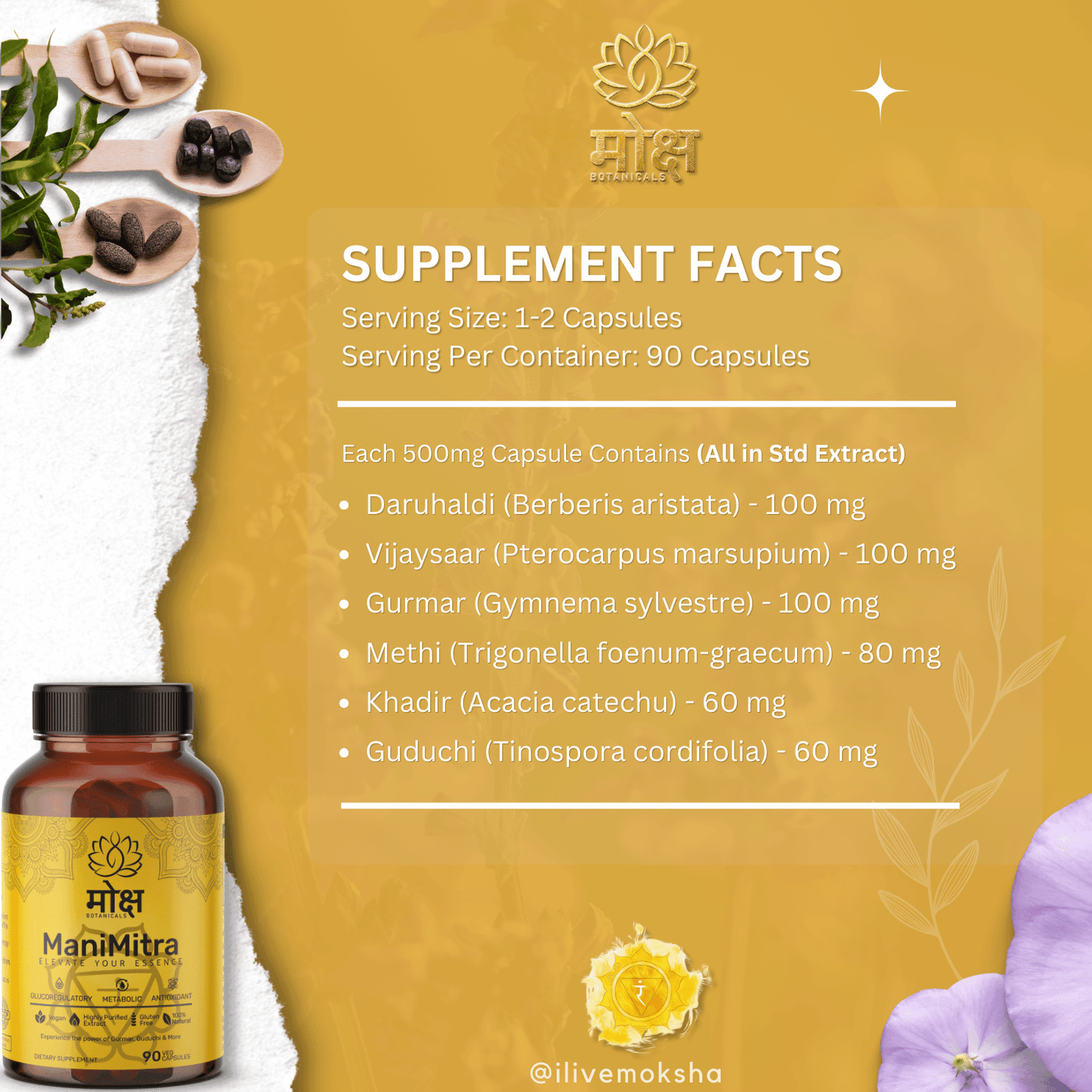





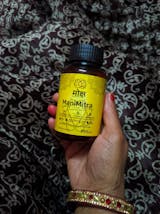
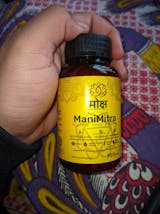






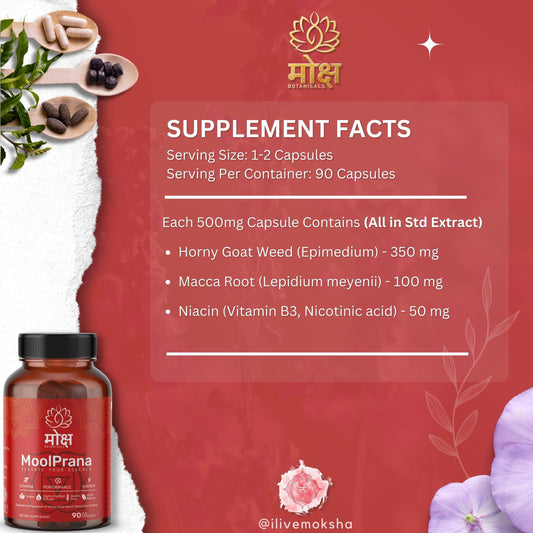

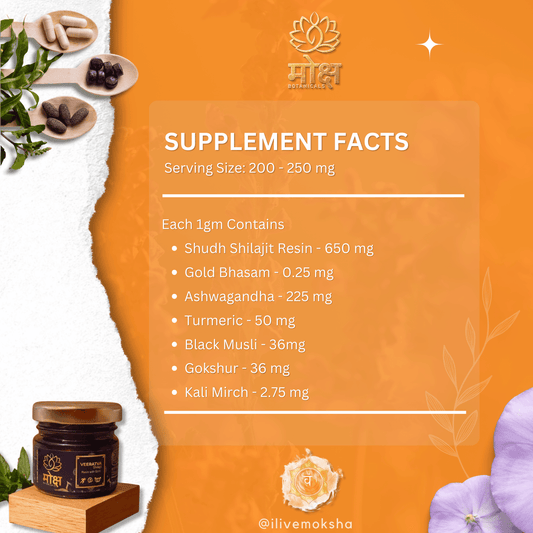

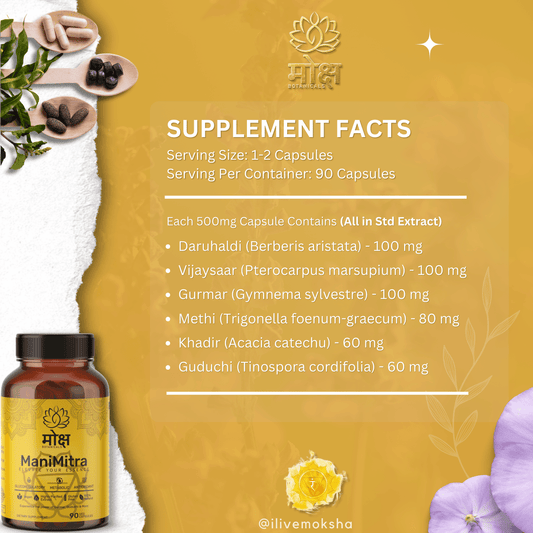



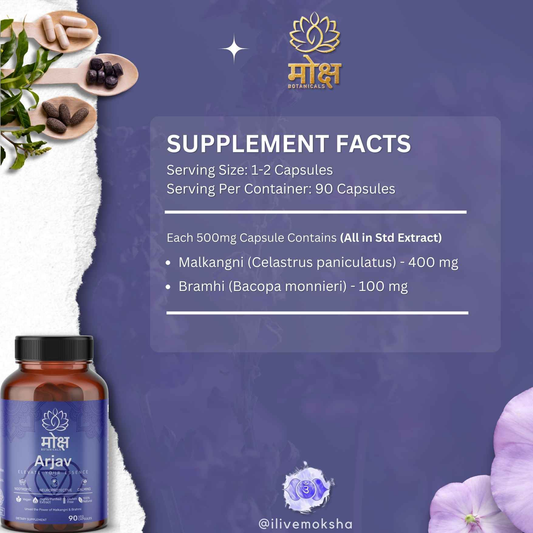

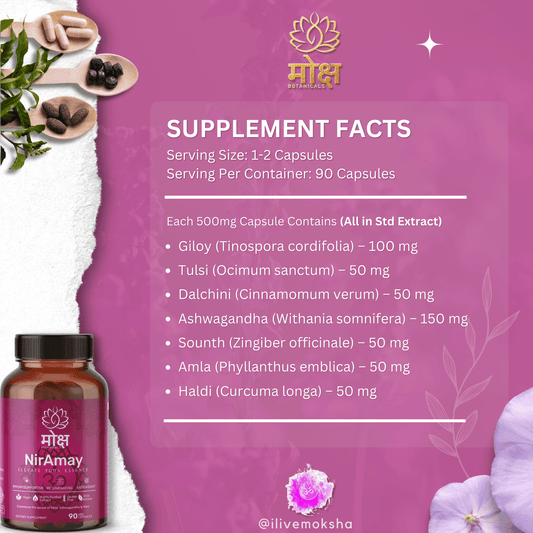
/smstreet/media/media_files/2024/12/17/HCvMLGuFSjQq7XXJ8lxT.jpg)
